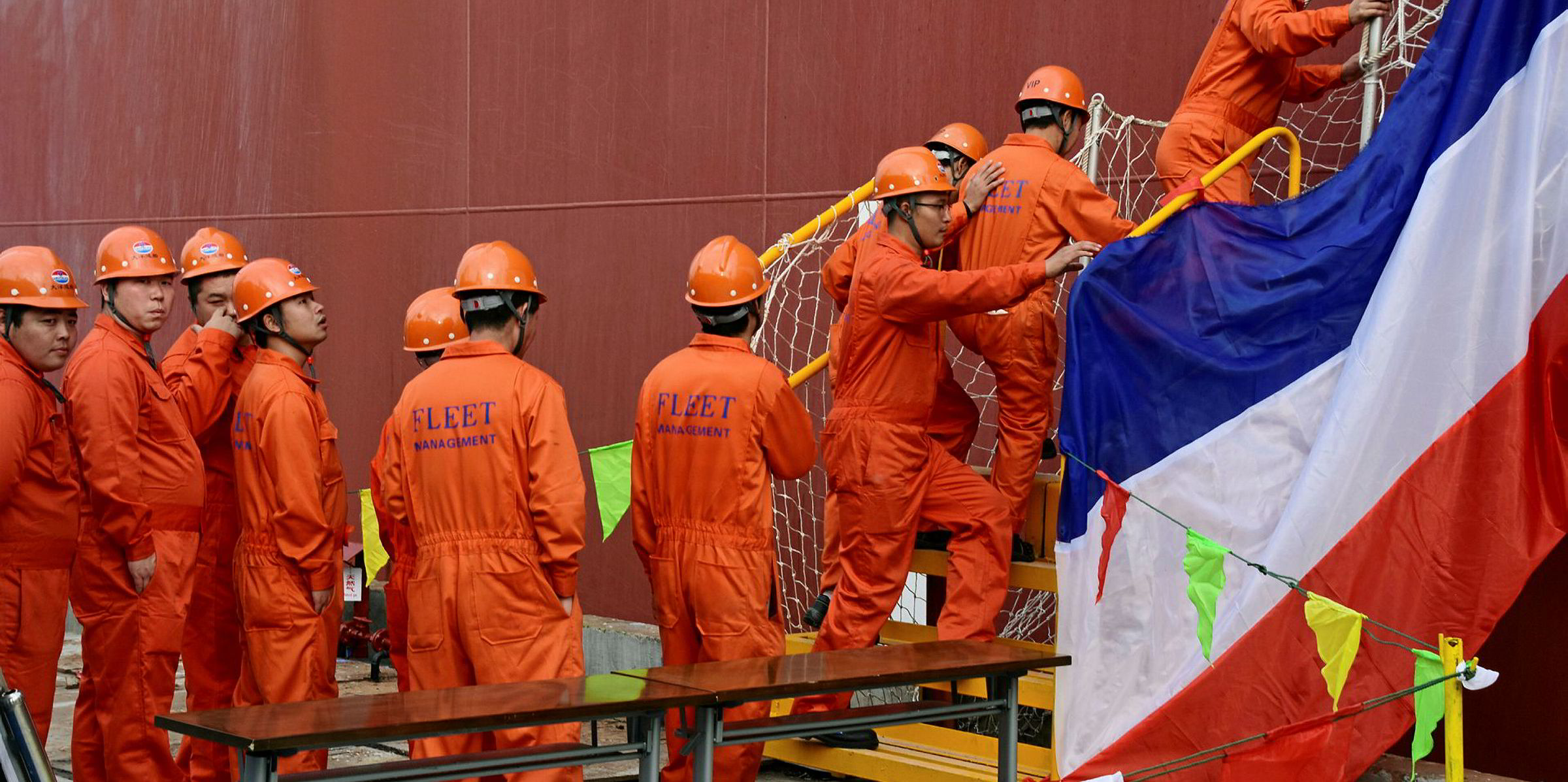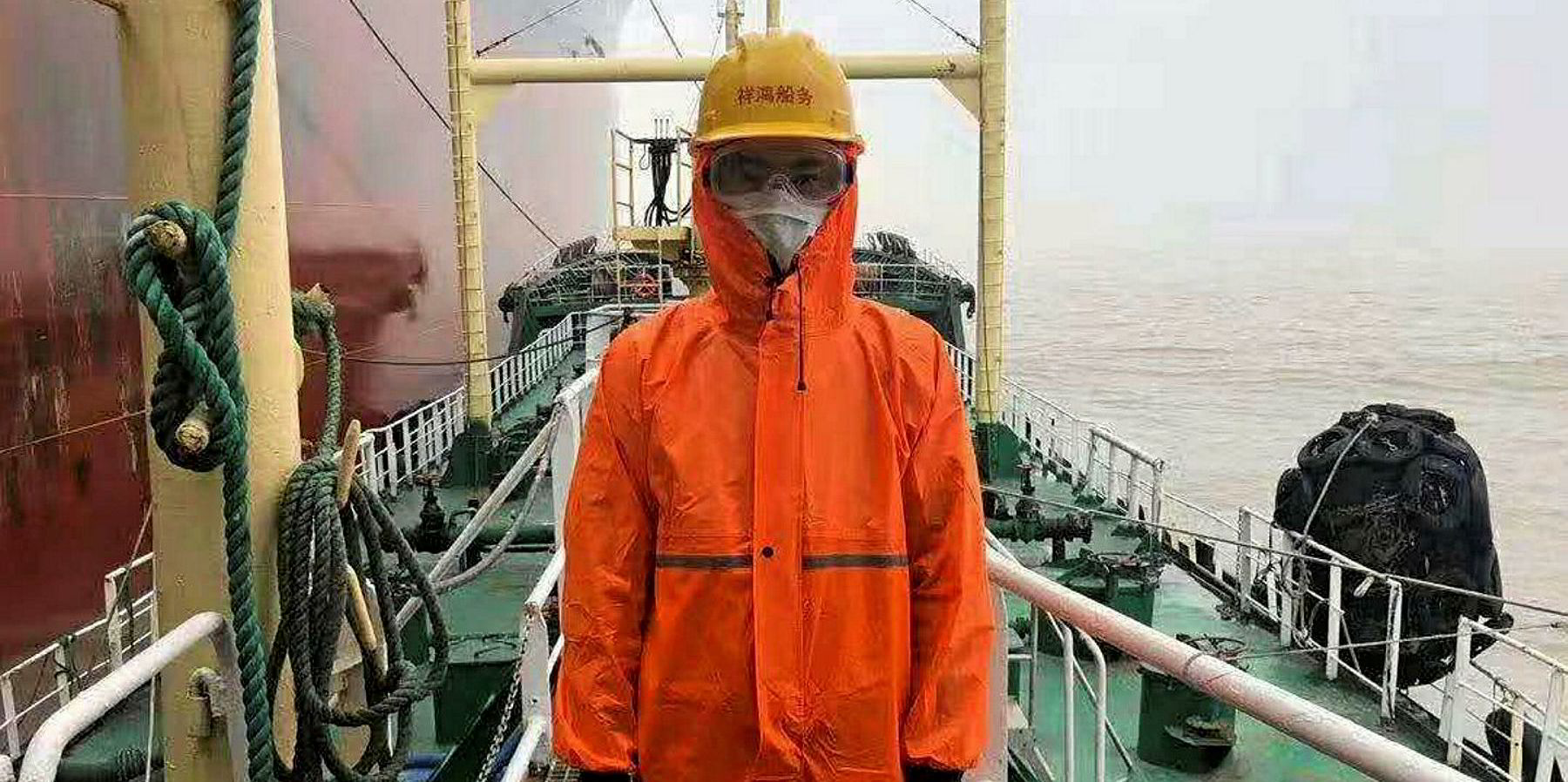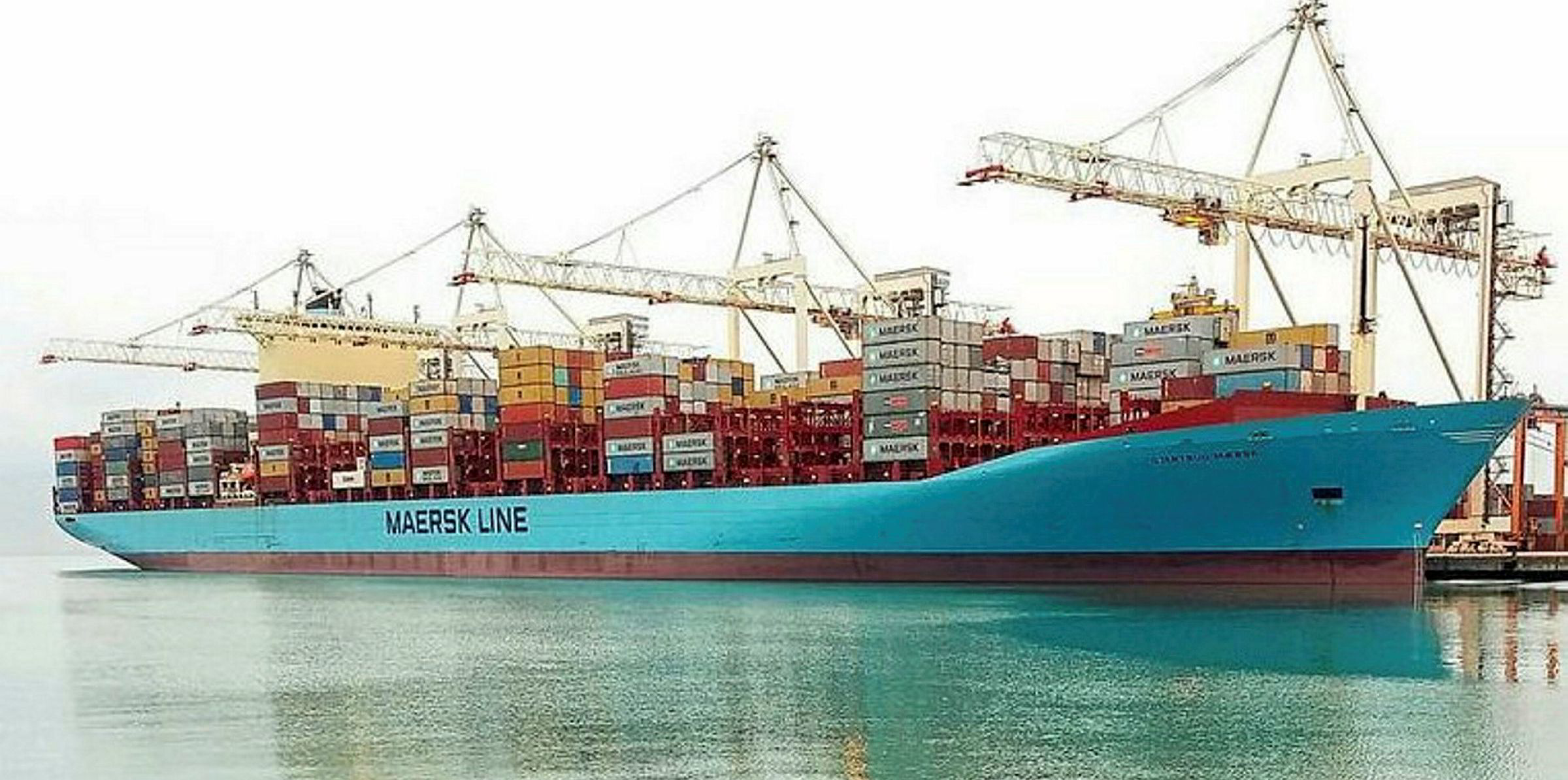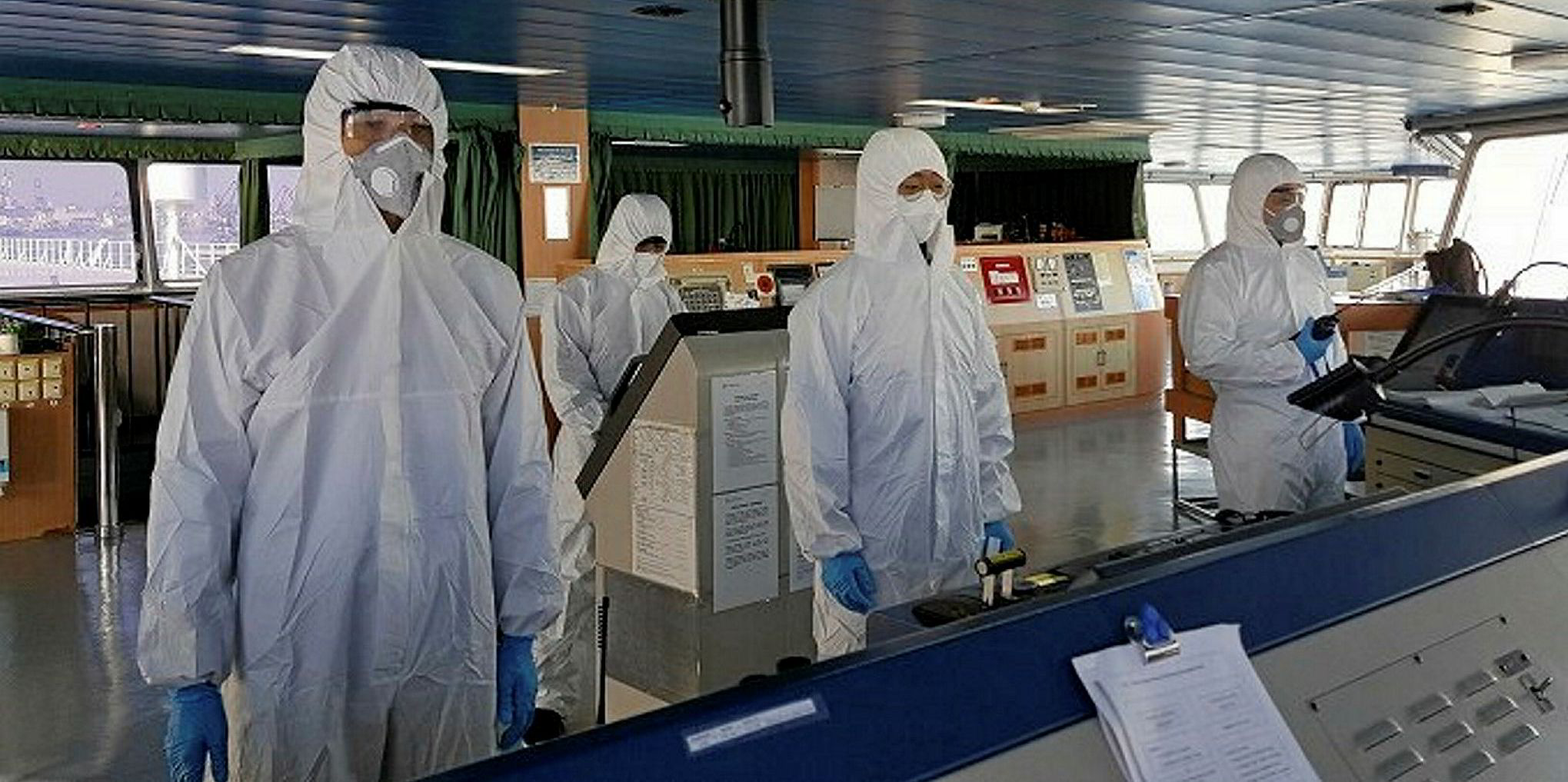Shipyards in China are struggling to deliver newbuildings to shipowners on time as strict quarantine and travel restrictions to stop the spread of coronavirus are preventing crew access to vessels.
China has banned all foreigners from entering the country, while lockdown measures in shipping’s main labour supply countries — the Philippines and India — have added to the problem.
Failure to deliver newbuildings in time could mean owners fail to meet charter party contract terms, exposing them to significant financial penalties.
Shipyards will also be hit in the pocket as the last and largest payment — up to 70% for a newbuilding — is paid following successful delivery.
Crewing conundrum
Crew access into China has been made more difficult after five crew members on the 11,078-teu Maersk containership Gjertrud Maersk (built 2005) tested positive for Covid-19 at the Chinese port of Ningbo this week.
An executive at a privately-owned shipyard based in Jiangsu explained the problem that shipyards face in terms of securing work permits and international flights for non-Chinese crew, and the impact of quarantine restrictions.
The yard is applying for Class C work permits, which cover short-term work in the country for non-Chinese crew, but the executive doubts the applications will be approved due to a reluctance by Beijing to grant entry to foreign crew.
“We are helping shipowners to bring in non-Chinese crew, so that they can take delivery of their vessels,” he said. “We will be applying the permit from [the] local maritime administration office, but they will forward the application to central government.”
The executive added that the availability of airline seats is set to pose another problem for shipping companies. To curb the number of people entering China, flights have been limited to one per week from each foreign country. Such flights can also only take up to 75% of the passengers that they are licensed to carry normally.
'Expensive' air tickets
“The cost of air tickets will be expensive and the limited number of seats means you probably won’t be able to get all 22 crew on board the aircraft,” he said.
In addition, on arrival in China, crew may face as long as 14 to 28 days in quarantine facilities, depending on the port of arrival — something that presents owners with another significant cost burden.
One shipmanager said some shipping companies and shipmanagers are considering contracting Chinese crew short term, for the purpose of taking delivery of their newbuildings.

“The problem with this is that shipping companies have their own supply of crew and they are not used to Chinese crew,” the China-based shipmanager said.
“We will certainly be expecting delivery slippage because of the crewing issues.”
As the crewing crisis continues, many organisations are piling pressure on governments and the IMO to relax restrictions on crew travel.
The International Chamber of Shipping (ICS) has teamed up with the International Transport Workers' Federation to ask the heads of four United Nations agencies to provide seafarers with the same "key worker" status as airline crew and medical personnel.
The four agencies are the IMO, International Labour Organization, UN Conference on Trade and Development and the World Health Organization.
ICS chief executive Guy Platten said the chamber is also working with the World Shipping Council and other international organisations to establish guidelines on port quarantines and crew changes.
“I've never seen collaboration on this scale,” Platten said. “Every week, now we have a call with them to try and discuss these issues.”
This week, the International Group of P&I Clubs also called for seafarers to be recognised as key workers and be given access to shore. It has opened talks with the IMO on the issue.
Wilhelmsen Shipmanagement chief executive Carl Schou called on governments to make travel exceptions for crew.
Schou said: “Shipping cannot stop due to Covid-19. We need a unified approach.”









